Washington under siege
Unprecedented security measures are being taken in the US capital on the eve of Joe Biden’s inauguration. The ceremony is due to take place on January 20.
After Donald Trump’s supporters stormed the US Capitol on January 6 when members of the US Congress were going to approve the results of the presidential election, heightened security measures were introduced in the city which had not been seen since the September 11, 2001 terrorist attack. The city is guarded by 25,000 National Guardsmen, the Congress building is surrounded by a barbed-wire fence and barricades have been erected in the streets.
The National Guard being deployed in Washington is a sign of the decline of American democracy and the division within American society. The US capital resembles an occupied city. Millions of Americans are not ready to recognize Joe Biden as their president. Under such conditions, the new administration’s statements about protecting democracy in the world will look certainly duplicitous.
Trump faces a second impeachment
On the night of January 13-14, the US House of Representatives voted to impeach President Donald Trump. The resolution on removal of the head of state from power received 232 votes, with 197 members of the lower chamber against it.
Now the Articles of Impeachment must be sent to the US Senate, where a trial will take place. Only the US Senate can decide to condemn Trump and remove him from power. This is the second time the House of Representatives has voted to impeach Trump. A year ago, the Senate, which had a Republican majority, voted against impeachment.
Now, however, the Senate will not be able to take up the issue until after Jan. 20, when Trump will have already left office. However, the Democratic Party leadership is pushing to impeach Trump. In theory, Trump could be impeached even after he leaves office, which would make him unable to participate in the political life of the country, including barring any future presidential run. This is exactly what the Democrats want to achieve. However, by doing so, they are leaving massive divisions American society.
Turkey against “digital fascism”
On January 13, Turkish President Recep Tayyip Erdoğan said the controversy over the US election results showed the reality of “digital fascism”. According to the Turkish leader, the events in the US were proof of the importance of Turkey’s fight against “digital dictatorship and cyberbullying.”
Erdoğan said Turkish authorities will not succumb to the dictates of foreign social networks and will emphasize the development and strengthening of national messengers.
On Tuesday, the Turkish leader’s administration said Erdoğan had started channels on Telegram and the Turkish messenger BIP after giving up the messenger WhatsApp..
Turkey is actively fighting against the monopoly of Western social networks, requiring them to report and store data in Turkey.
New CDU leadership
On January 16 in Germany, delegates at the online convention of the Christian Democratic Union (CDU) elected Armin Laschet, Prime Minister of North Rhine-Westphalia, as the party’s new chairman with 521 votes out of 991.
The new CDU leader is the main contender to succeed Chancellor Angela Merkel. There will be parliamentary elections in Germany in 2021. Merkel herself will not claim the post of chancellor if the conservative CDU-CSU coalition wins the elections.
Lachet is the prime minister of North Rhine-Westphalia, one of the largest (along with Bavaria) and most populous federal states in Germany. He is the only candidate who has experience in governing an entire region and is the leader of the CDU, the largest land association in Germany. Lachet is seen as the closest figure ideologically to Merkel and will continue her party policy.
Armin Lachet was Germany’s first Minister for Integration (in North Rhine-Westphalia), he carries the intraparty nickname “Turkish Armin” and endorses “open door” policies for migrants. In an interview with Politico in October 2020, Lachet spoke positively about German-Turkish relations.
Libya: Stephanie Williams’ dark schemes
On January 16, the UN reported that the Libyan Political Dialogue Forum (LPDF) agreed on a mechanism for selecting a new government for the country to prepare for elections. This took place at a meeting of the Consultative Committee formed by participants of the LPDF.
Unfortunately, however, the process of preparing this decision was as opaque as possible. Also, the mechanism itself was announced by Stephanie Williams, acting head of the United Nations Support Mission in Libya (UNSMIL), and is extremely confusing.
Williams said that each of Libya’s three regions (Cyrenaica, Fezzan and Tripolitania) should appoint a representative to the presidential council “based on the principle of agreement and selection 70 per cent”. However, she did not specify how and by whom that representatives would be elected.
Williams’ further attempt at the press conference to somehow explain the mechanism only confused things further:
“If this is not possible, lists shall be formed from all regions. Each list shall consist of 4 persons who will specify the position for which they are running: i.e. President of the Presidency Council, member of Presidency Council, or Prime Minister. In order for the list to be presented for voting by the Plenary, it must receive 17 endorsements (8 from the West, 6 from the East, and 3 from the South). The winning list shall be the one that receives 60% of the votes of the Plenary in the first round. If none of the lists receive this percentage, the two lists that received the highest percentage shall compete in the second round. The winning list in that round shall be the one that receives 50%+1 in the Plenary”.
It is not clear who nominates and votes for candidates or lists of candidates from each region before they get to the LPDF, who and how can be nominated for prime minister and members of the government (Williams said nothing about the latter issue at all). It is also not clear how the government will be formed if the regions do submit their nominations to the Presidency Council.
On January 18, the LPDF members must approve the mechanism. If the mechanism is not approved by 63% of the participants, there will be a new vote in two days. Where a 50%+1 vote will already be required.
Such a convoluted scheme is very vulnerable to manipulation. The LPDF has already been accused of trying to impose ready-made solutions on Libyans from the outside. The forum meetings in Tunisia in November were accompanied by scandals and allegations of bribery. Such a complex and cumbersome scheme undermines the credibility of the results. It is very likely that many actors in Libya will refuse to recognize the legitimacy of these agreements, which means that the UN-led peace process will be undermined.
Libya needs more transparent and clear rules for determining its future, and participants in the negotiation process should represent real political forces. The very legitimacy of the LPDF participants, many of whom are personally appointed by Stephanie Williams, is now in question. So far, UNSMIL has only created the appearance of working to normalize the situation in Libya, which will not lead to real political reconciliation.
Protests in Tunisia
On the evening of Sunday January 17, Tunisian authorities deployed units of the national army in several provinces of the country to protect state institutions and to fight riots. Mass protests in Tunisia have been going on all last week. Protesters say they are opposed to harsh police action and the economic crisis.
Protests in Tunisia have been ongoing since last December, coinciding with the 10-year anniversary of the start of the “Arab Spring”. Arab media are reporting that the gas pipeline from Algeria to Italy, which runs through Tunisia, is under threat.
The End of the Open Skies Treaty
On January 15, Russia announced the beginning of the procedure for withdrawing from the Open Skies Treaty. This was preceded by the US withdrawal from the treaty.
The Open Skies Treaty was signed in 1992. It is a multilateral international treaty authorizing free flight of unarmed reconnaissance aircraft in the airspace of signatory countries.
The rejection of the treaty by Russia and the US demonstrates the erosion of the international arms control regime. The security sphere in international relations is becoming increasingly risky. On the other hand, the sovereignty of individual states is increasing as restrictions on the development and deployment of weapons are reduced and international control is minimized.
Israeli airstrikes on Syria
On the night of January 13, Israeli Air Force aircraft carried out a series of strikes against military positions and weapons depots near Deir Ezzor and al-Bukamal near the Syrian-Iraqi border
Israeli night raids targeting weapons depots and military positions in eastern Syria killed at least 59 Syrian soldiers and allied fighters in what became the deadliest operations since 2018. The strike followed a January 11 meeting between US Secretary of State Mike Pompeo and Mossad chief Yossi Cohen.
The airstrike on Syria is Israel’s second act of aggression in 2021. The targets of the strikes are Iranian military advisers who are helping Damascus in the war on terrorism, as well as fighters of the defeated militias fighting on the side of Damascus. The areas that Israel struck are a zone of guerrilla warfare by ISIS fighters, directly aiding the terrorists in their fight against the Syrian government.
Cuba back on state sponsors of terrorism list
On January 12, the US has once again included Cuba on the list of states that, according to Washington, support international terrorism. According to US authorities, Havana has refused to extradite the leaders of the Colombian left-wing rebel group National Liberation Army (ELN) living in the country.
Washington notes that inclusion on the list means the possibility of imposing sanctions on individuals and countries that are involved in certain types of trade with Cuba, provides for restrictions on foreign aid from the United States, a ban on the export and sale of defense goods, the introduction of certain controls on exports of dual-use goods.
DPRK: Nuclear restraint
On January 12, Pyongyang hosted the Eighth Congress of the Workers’ Party of Korea (TPK). North Korean leader Kim Jong Un was elected general secretary of the CPC Central Committee. Meanwhile, Kim Yo-jong, his younger sister, was expelled from the Politburo of the CPC Central Committee. Kim Yo-jong, previously considered to be an ” éminence grise” of North Korean politics. It remains to be seen whether she will retain her former influence under the new circumstances.
Speaking at the congress, Kim Jong-un called for further development of nuclear forces and an open dialogue with Seoul and Washington.
On the evening of January 14, there was a military parade in Pyongyang. The parade featured the Pukguksong-5 submarine-launched ballistic missile, described by the official North Korean media as “the most powerful weapon in the world”. North Korea’s actions demonstrate that the country is not going to give up nuclear weapons as a guarantor of its sovereignty. At the same time, Pyongyang is ready for dialogue with the new US administration.
Elections in Uganda
The Electoral Commission of Uganda announced the victory of current President Yoweri Museveni in the presidential election. According to the commission, Museveni won almost 59% of the votes. Thus Museveni will become the president of the country for the sixth time.
The president’s main rival in the election, musician Bobi Wine, claims the election was tainted by fraud and irregularities.
Presidential and parliamentary elections were held in Uganda on January 14 amid heightened security measures. Two days before the election, Uganda turned off the Internet after Facebook deleted accounts supporting the incumbent president. Facebook and Twitter said they “strongly condemn internet shutdowns.”
Western countries, especially the United Kingdom, are trying to use reports of election irregularities in Uganda to put pressure on the country. In particular, the British Minister for Africa James Duddridge declared that: “The UK is concerned by the national internet shutdown, which clearly limited the transparency of the elections, and constrained the freedoms that Ugandans are entitled to”. According to him “the UK is a steadfast advocate for Ugandan democracy”.







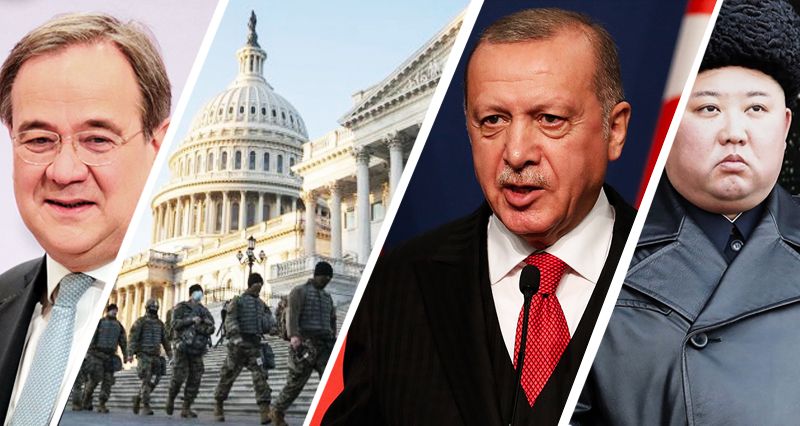




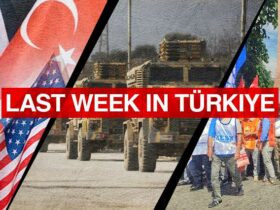
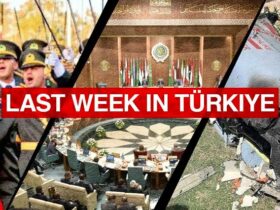
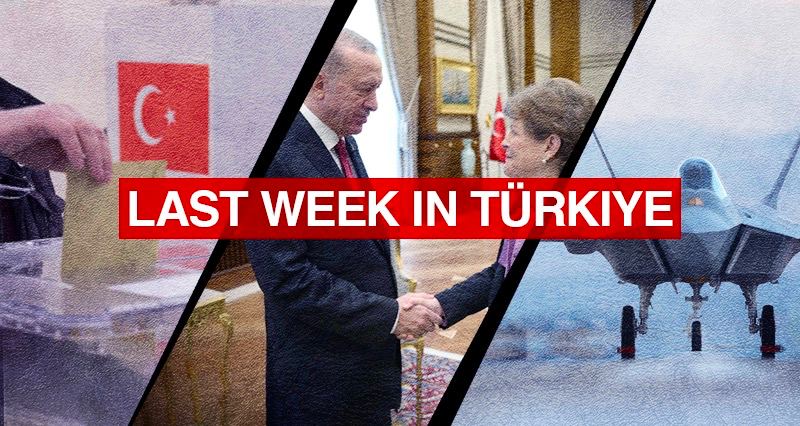
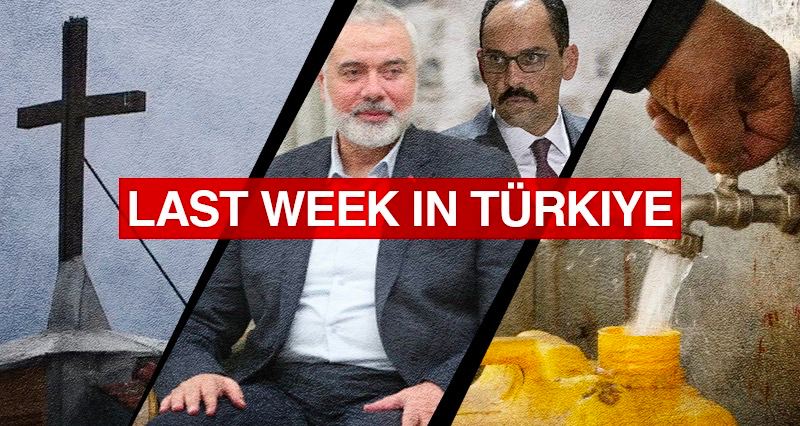

Leave a Reply